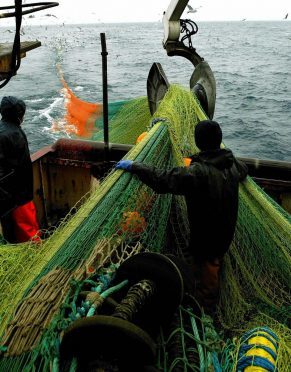A think-tank has been criticised for showing “a complete lack of understanding” of fisheries management in a new report shaming the UK, Denmark and Spain for mismanaging their seas.
The Scottish Fishermen’s Federation (SFF) said yesterday the New Economics Foundation (NEF) was also “pulling the wool over people’s eyes” by cherry-picking facts.
NEF’s report – Landing the Blame: Overfishing in the Northeast Atlantic 2016 – claimed to have uncovered the EU countries most responsible for setting fishing quotas above scientific advice.
It highlighted the UK, Denmark, and Spain as the worst offenders in terms of the total tonnage of fish quota set above advice.
According to NEF, the UK’s total quota allocation exceeded scientific advice by 18% last year.
Report co-author Griffin Carpenter said: “Fisheries ministers risk damaging our natural resources beyond repair by consistently setting fishing limits above scientific advice.
“This is our second year running a series of briefings to identify which member states are standing in the way of more fish, profits and jobs for European citizens.
“If EU waters were properly managed, with damaged fish stocks rebuilt above levels that could support their maximum sustainable yield (the largest catch that can be taken from a stock without harming it), we could enjoy their full potential within a generation.”
He added: “Scientific bodies, predominantly the International Council for the Exploration of the Sea, provide information about the state of most stocks and recommend maximum catch levels. But for many years, this scientific advice has not been respected.”
SFF chief executive Bertie Armstrong said: “The New Economics Foundation in this new report exhibits a complete lack of understanding of the complexities of fisheries management and is pulling the wool over people’s eyes by cherry-picking facts.
“Science leads the way in fisheries management decisions but in complex mixed fisheries, where several different species of fish are caught at the same time, reducing the quota for one species … would often deliver absolutely no conservation benefit as these fish would get caught anyway and would only lead to increased discarding.
“It is much better to focus on long-term gradual management plans to ensure sustained stock recovery for all species – and this is already happening.”
“NEF fails to mention in its report that for the majority of stocks in north-west Europe, fishing mortality has decreased to a level consistent with maximum sustainable yield.”
Meanwhile, Scottish-caught blue whiting – a cod-like fish used mainly in fish sticks and pie fillings – has been certified as responsibly fished under the Marine Stewardship Council standard.
Atlanto-Scandian herring has been re-certified for a further five years.
